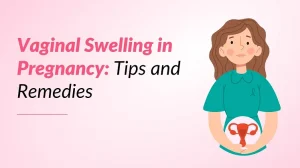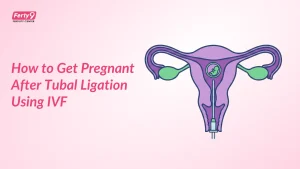Fertility outcomes in studies are important as a healthy f family much depends upon what these studies have to say. IVF is an option for childless couple to have a baby but it does involve stress and anxiety.
Stress has indeed of late become a very common part of one’s daily life. Relationships are on tenterhooks due to fast-paced lifestyle. Stress can have an extremely negative impact on infertility as it can disturb both a man’s and a woman’s hormonal cycle and also make it very difficult to conceive.
Related Read: Can stress cause infertility?
WHAT IS STRESS?
Be it the home front or the workplace stress is an inevitable component. It causes much mental or emotional upheaval. It affects lifestyle adversely. This mental turmoil later tends to manifest in various physical problems like infertility, irregular period cycles, blood pressure, etc.
Everyday Stressful Situation and Its Impact
Stress it is understood does not affect the outcome of IVF. There is stress and anxiety before undergoing fertility treatment. It is important to learn to make use of coping strategies to manage stress. This applies while undergoing IVF too. Here also stress and fertility go hand in hand.
Women with infertility do report elevated levels of anxiety as well as depression, so it is clear that infertility does cause stress. Yet doubt is there whether or not stress causes infertility. The impact of distress on treatment outcome is difficult to investigate for several factors, including inaccurate self-report measures and feelings of increased optimism at treatment onset. Efforts are on to lower psychological distress associated with significant increases in pregnancy rates.
Infertility is considered to be a silent struggle. Patients who happen to be struggling to conceive do report feelings of depression, anxiety, isolation, and also loss of control. Depression can develop in patients suffering from infertility.
Patients who happen to undergo assisted reproductive treatment (ART) are rather at much risk of experiencing psychiatric disorders and it is also important to recognize, acknowledge, and assist these patients as they try their best to cope with their infertility diagnosis and treatment.
Infertility happens to be a life crisis affecting patients from all across the world. Infertile patients indeed experience a tremendous amount of emotional turmoil due to the diagnosis. The risk of depression, anxiety, and distress is rather high for infertile patients.
The psychiatric disorders linked to infertility treatment and the potential impact of those symptoms on reproductive treatment outcome, as well as the efficacy of psychological interventions on both distress and pregnancy rates is much to reckon with.
Stress can impact fertility and IVF outcomes. Based on a 2019 trial, stress does not negatively affect IVF outcomes. It has been found that cortisol levels were highest on egg retrieval day. It can be cautiously concluded that high follicular cortisol concentrations might rather have positive effects on pregnancy rates.
It can indeed be cautiously concluded that physiological as well as psychological stress do not negatively affect IVF outcomes. Moreover, high follicular cortisol concentrations might have positive effects on pregnancy rates.
Fertility treatment is indeed stressful without adding unstable hormones to the mix.
Also Read: Ways to Boost your Fertility and Control Stress
Stress: Does it affect IVF outcomes?
A study conducted does highlight emotional stress as well as infertility and it has been observed that the distress that women face before IVF treatment, as well as stress from other aspects of their life, does not impact their pregnancy chances.
Yet, other studies do differ in their outcome. A later study into stress and IVF found that lower stress levels the day before egg retrieval lead to higher pregnancy rates. However, this study was very small as compared to other larger studies.
Summary
Yet, there are several arguments favoring the fostering of a sense of psychological well-being during IVF and other fertility treatments. Stress also appears in several forms, including childhood stress, short-term stress, and also more complex stress. Measuring the effect of stress is difficult as people tend to react to stress in different ways.
For a more accurate prediction of your timeline, try our IVF Due Date Calculator to plan your next steps




























